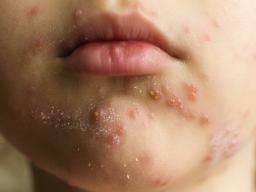Introduction
Atopic dermatitis, often known as eczema, is a typical skin ailment that can cause dry, itchy, and discoloured patches of skin on any part of the body, including the face. Face-related eczema is more prevalent in newborns and young children. But everyone can acquire it. Baby skin affected by eczema, in particular, can develop blisters and crusts. It is referred to as weeping acne. The itch-scratch cycle might worsen by thickening the skin due to scratching and itching. Even while eczema instances often go away after childhood, flare-ups might still happen. Adult eczema flare-ups are frequently brought on by overly dry skin and exposure to irritants. It is possible to treat facial eczema and stop it from returning. How? Read on. Here is a guide on best ways to cope with eczema on your face.
Facial Eczema: Coping Strategies
A frustrating condition is an eczema. By taking action, you can improve your skin condition.
Find Assistance
When facial eczema flares up, many people feel ashamed of themselves. As a result, you can lose confidence or withdraw from social situations. Ask your relatives and friends for assistance. Connecting with like-minded individuals can help you have a better perspective on life. Find out if there are any nearby community support groups by asking your doctor.
Treatment For Itching
Eczema can itch badly. When itching is so bad, you can't go to sleep or carry on with your usual routines. Antihistamines or damp, cooling towels can be applied to the area in some circumstances. If you have persistent itching, seek assistance from your healthcare practitioner.
How To Treat Eczema On The Face
Although it may seem like nothing makes you feel better, there are techniques to reduce atopic dermatitis symptoms (AD). These are the simple adjustments dermatologists advise.
- Choose skin care products without fragrances. Facial eczema can become inflamed in response to the fragrance. Avoid buying fragrance-free items if possible. On product labels, "unscented" may be written. Avoiding them is advised. This implies that the scent has been covered up. Unscented items won't smell, but a masking fragrance can still set off an allergic reaction.

- Take note of the sun. If you experience flare-ups, sunscreen could be necessary. Products with zinc oxide or titanium dioxide are typically better tolerated by sensitive skin. After spending time in the sun, clean your skin and hydrate it. Although they can be useful, sunscreens can dry out your skin.
- To thoroughly clean your skin, use soap. Soap might aggravate your skin. But cleaning your face with water alone might not be enough if you have oily skin. Use a medical emollient or a moderate non-soap washing soap instead. Dry the skin off with a gentle towel.
- Protect your skin from the cold. Your skin might become dry and irritated in cold weather, triggering or exacerbating eczema flare-ups. Always wear a scarf or other clothing to cover your skin when you walk outside in the cold. Your skin may benefit from moisturising more in the winter than in summer.
- Be careful when applying makeup. In areas of an eczema outbreak, carefully apply makeup. It may aggravate the situation further. Liquid makeup should be used when applying it. Dryness may result from powders that absorb oil. The liquid's hydrating properties might hasten to heal.
- Hydrate your skin. Use ointments like Aquaphor and Vaseline or thick creams like Cetaphil and Eucerin. It is recommended to do this shortly after washing your face. If creams are too greasy for your skin, utilise ointments at night.
- Make sure to test all skin care products before using them. Aside from the scent, other components in skin care products may also trigger flare-ups in patients with facial eczema. To your skin, apply a small amount of the product. You can try it this way without risking facial eczema. At least 24 hours should pass before removing it from your skin. If your skin is clear after 24 hours, it is less likely to trigger a flare-up.

Conclusion
Eczema is a disease for which there is no cure. You can take a lot of different actions to benefit your skin. Many people want to try everything when they have these kinds of rashes. Use gentle, minimal products that rehydrate the skin and promote healing instead. Treatments for eczema include phototherapy, medicines, avoiding allergens, and hydrating the skin. Consult a dermatologist for more treatment options if you still have eczema.

Buttock Pain Causes and Treatment Options
Nov 13, 2023

How Bad Sleep Patterns Could Raise Heart Disease Risk In Older Adults
Oct 15, 2024

Do You Have A Phone Addiction? How To Utilize It To Develop Healthy Habits
Nov 16, 2023

What is Albumin
Feb 03, 2024

You Must Be Aware Of What Are Covid Nails
Nov 25, 2023

It Would Be Best If You Kept In Mind Menopause Causes A Jump In Cholesterol
Nov 02, 2023

Daily Harvest: A Dietitian's Sincere Analysis
Dec 20, 2023

What Causes The Ache In Your Arm After Getting A Flu Shot?
Nov 19, 2023



